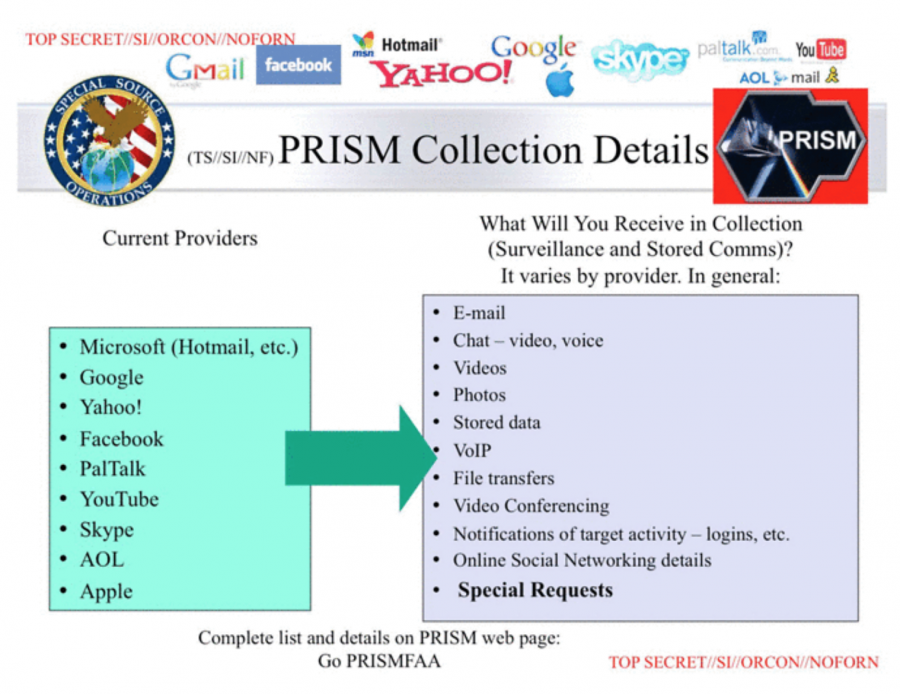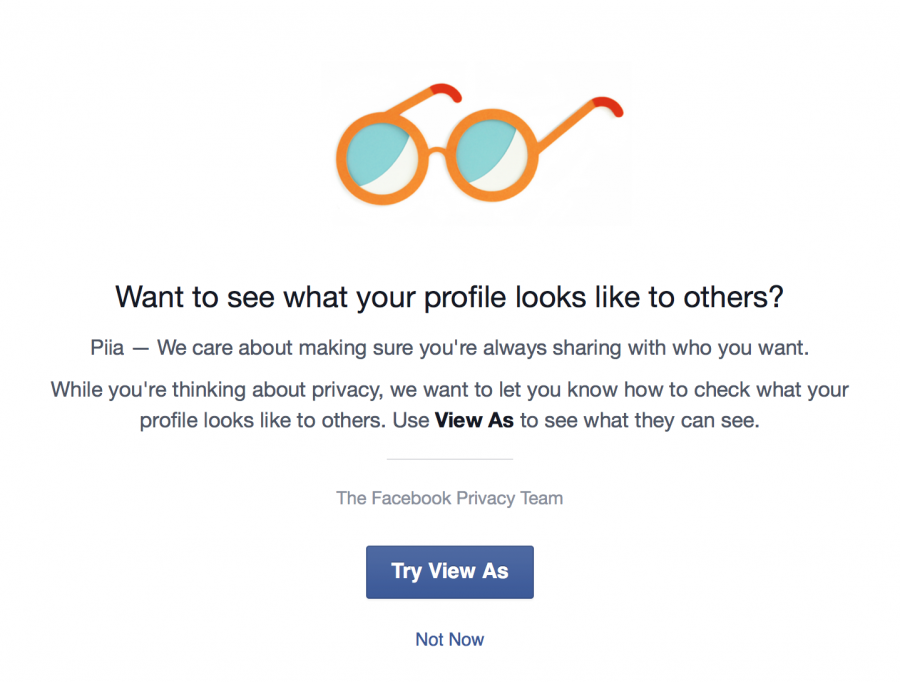
Five years after the Snowden revelations
Solutionism, individualism and surveillant anxiety
Depending on one’s point of view, Edward Snowden is either a traitor or a heroic whistleblower. Beginning on June 5, 2013 with reporting by The Guardian, the world became aware of the scale and scope of surveillance by the National Security Agency (see The Guardian NSA files here).
It’s five years now since the Edward Snowden revelations, and I’ve been thinking a lot about whether anything has changed in the meanwhile. As surveillance scholar David Lyon says in his 2015 book Surveillance after Snowden: “even when people say that they are concerned [about privacy] they do not necessarily attempt to do anything about it” (p. 98). Discussions about social media and privacy, for instance, often become simplistic either-or debates where questions regarding privacy and data collection are countered with all the positive things social media has to offer - you can easily stay in touch with people; through social media you have access to a wealth of information you wouldn't encounter otherwise; it's a nice distraction from work or studying; all your friends are there...etc., etc. And, curiously, the use of privacy-awkward media such as Facebook is often justified by a reason more familiar from austerity politics: ‘There is No Alternative!’.

From the NSA documents published by The Guardian
There are, in fact, of course always alternatives; Facebook is not all the internet has to offer, although the degree to which it’s part of different aspects of many people’s social lives and the huge social archives people have accumulated there over the years make it difficult for many to consider alternatives. And questioning the privacy aspects of social media does not mean denying the positive things that social media has to offer; for many people, in many ways, corporate social media is a very useful and enjoyable channel for communicating and socialising with others.
That’s why it’s perhaps unsurprising that the Cambridge Analytica scandal and other Facebook privacy trainwrecks (a term danah boyd used in 2008, and the evidence has since only been mounting) have not really deterred people from using the medium (although it seems that young people are no longer interested in it, so I’m curious to see what the future brings). Facebook has also attempted to rebrand itself; it changed its hacker-inspired motto ‘move fast and break things’ to the slightly-less-sexy ‘move fast with stable infrastructure’ already in 2014, and Zuckerberg’s apology tours and other crisis management have also apparently worked to ease users' privacy concerns.
Enjoying exposure
All of that probably partially explains why many seem uninterested in discussions about privacy, data politics and surveillance, especially in the context of social media. Perhaps there's also something wrong with the metaphors we continue to use to talk about these issues; as Bernard Harcourt puts it in Exposed. Desire and disobedience in the digital age (2015), “Metaphors matter. They shape the way we understand the present. They affect the way we respond. They are powerful devices. And they need to be rethought.” (p. 28) As Harcourt mentions, the Big Brother is often still evoked as a metaphor for surveillance (and interestingly enough, many media outlets reported on the soaring sales of Orwell's 1984 in the wake of the Snowden revelations).
"it has become increasingly clear that surveillance is unevenly distributed"
Talking about the Big Brother is probably not going to have much effect, though; people don't recognise themselves as living with one. Harcourt, as many others, suggests that “We are not just facing an Orwellian Big Brother. Nor are we wrestling primarily with a surveillance state. And Foucault’s notion of panopticism also misses important aspects of our contemporary situation.” (p. 28) He proposes that we live in an 'expository society', where we don't need Orwellian coercion to conform: ours is a world where surveillance works “through the simplest desires, curated and recommended to us.” (p. 47) That is because we derive so much enjoyment from exposing ourselves, leaving traces of ourselves: “We take so much pleasure playing with our videos, texting, and Facebooking that we simply do not resist the surveillance. We let our guard down. We care less – we don’t read the terms of service, we don’t clean out our cookies, we don’t sign out of Google. We just want, we just need to be online, to download that app, to have access to our email, to take a selfie.” (p. 52)
The digital environments where we expose ourselves, and our enjoyment in doing that means according to Harcourt (2015: 52) that “No, we don’t live in a drab Orwellian world. We live in a beautiful, colorful, stimulating, digital world that is online, plugged in, wired, and Wi-Fi enabled. A rich, bright, vibrant world full of passion and jouissance – and by means of which we reveal ourselves and make ourselves virtually transparent to surveillance.” Harcourt claims that we enjoy the likes, the shares and the attention so much that we're willing to ignore the Snowdenian aspects of digital environments. In the meanwhile, people continue to live in what Kate Crawford has called “surveillant anxiety — the fear that all the data we are shedding every day is too revealing of our intimate selves but may also misrepresent us. Like a fluorescent light in a dark corridor, it can both show too much and not enough.”
While it's unclear whether this anxiety is very widespread, some people certainly have more reason for anxiety than others; as Lyon puts it in Surveillance after Snowden: "Over the past two decades, it has become increasingly clear that surveillance is unevenly distributed. That is, some population groups find themselves under more intensive scrutiny than others, or because the data are processed in particular ways, some groups are unjustly discriminated against. Since 9/11, for example, airport security checks in North America, Europe and elsewhere have resulted in disproportionate delays and detainment for brown-skinned people, especially if they appear to have ‘Muslim’ or ‘Arab’ features or profiles." (p. 104)
For some, the questions regarding tech companies’ possible willingness to collaborate with the Trump administration in creating a ‘Muslim registry’ during the 2016 US presidential elections worked as a (temporary?) powerful reminder of the possible implications of the availability of huge amounts of data about people and the consequent potential for 'social sorting', where people can be profiled into categories such as 'Arab' and 'Muslim'. The public and media consternation was inflamed by the fact that only Twitter immediately responded that it would not collaborate, while it took for instance Facebook, Apple, Microsoft and Google a bit longer to confirm that they wouldn't either (see also this article by Amnesty International).
"the kind of privacy that makes sense in post-Snowden times sees the common good as paramount"
There is indeed at least some debate from time to time, and the more prominent the media spectacle, the more likely is the debate: earlier this year, the creepily laughing Amazon Alexa and the later incident of Alexa recording a private conversation and sending it to another user sparked, with their creepy factor, some (again, temporary?) interest in digital privacy. Yet the solutions to privacy problems offered by Silicon Valley companies look a lot like what Evgeny Morozov has so nicely dubbed ‘technological solutionism’: “an endemic ideology that recasts complex social phenomena like politics, public health, education, and law enforcement as “neatly defined problems with definite, computable solutions or as transparent and self-evident processes that can be easily optimized—if only the right algorithms are in place!””
Witnessing one privacy scandal after another and the kinds of data collection and breaches companies imagine to be acceptable, one starts to wonder why more people don't think like Tracy Chou (a Silicon Valley engineer known for her work in Pinterest and Quora, for instance) who suggests that every tech worker would benefit from a humanities education: "It worries me that so many of the builders of technology today are people like me; people haven’t spent anywhere near enough time thinking about these larger questions of what it is that we are building, and what the implications are for the world." Perhaps if this were the case, discussions around and solutions to privacy and surveillance would be different. For now, it seems that what's offered by tech companies is superficial 'you-can-now-change-your-privacy-settings' technological fixes and individualistic solutions.

Facebook cares about your privacy
Five years after the Snowden revelations
So, five years after the Snowden revelations, where are we now? Technological solutionism as a solution to issues, and individualistic models of privacy – both of which come down to tweaking algorithms, creating new types of privacy settings for users to adjust, and adding more detail to data settings (partially due to new legislation such as the European General Data Protection Regulation in the EU) - prevail, but don’t really solve anything.
In Surveillance after Snowden, Lyon reminds us of Snowden’s question regarding what kind of society we want to live in: "Is it one marked by fear and mutual suspicion, where data is collected promiscuously and kept forever, in systems that never forget, making forgiveness obsolete and creating much to fear even though you have nothing to hide? Is it one where vulnerability is amplified, democracy diminished and where ordinary people are more exposed to organizations that are themselves more opaque? Or is it a different kind of society, the contours of which we can imagine but not yet experience?" (p. 114)
one starts to wonder why more people don't think like Tracy Chou who suggests that every tech worker would benefit from a humanities education
It is these kinds of questions that should matter in public debates about digital privacy and surveillance - not whether there are more options to adjust the visibility of one's social media posts. This is not to undermine the importance of such options; they are, after all, what matter nowadays in managing our online social lives. However, privacy is about more than that; it shouldn't be individualised and discussed in terms of technological fixes. As Lyon puts it elsewhere in the book: “privacy as a value is essential. (…) [it] is an essential component of democracy and of a decent human life.” (p. 101) And “the kind of privacy that makes sense in post-Snowden times sees the common good as paramount, and cares deeply about protecting the other person, not merely about ‘my privacy’.” (p. 113). And yet, five years after the Snowden revelations, and many privacy breaches later, it unfortunately seems like we’re still more interested in the privacy settings - in 'my privacy'.